I have just returned from Portugal where I attended the International Conference on Tourism – ICOT 2019, hosted by the Portuguese Catholic University – Braga Campus. The conference was co-organised by Konstantinos Andriotis and Carla Cardoso, two academics who hold PhDs from BU. ICOT is the child of Dr. Andriotis, a Professor in Tourism at the Middlesex University London, who has been running the conference for nine years, with previous editions in held in Greece, China, Cyprus, U.K., Italy and Thailand. Besides myself, Carla and Konstantinos, another BU PhD alumni attended the conference (Alexandra Correia from the Polytechnic Institute of Viana do Castelo), so we took a picture together.
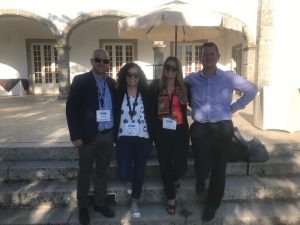
Under the banner of “Tourism into the new decade: challenges and prospects”, the conference attempted to discuss the implications of the growth of tourism while identifying “future trends and examine various responses with respect to the appropriate policies and management techniques”. A total of 27 parallel sessions encompassing 122 paper presentations, a poster session and two keynote speeches made up the academic element of the conference. The conference attracted over 140 delegates from 30 countries representing nearly 100 universities.
Besides helping the local organising committee, my main involvement was running two special sessions in Portuguese. Although it is an international conference and presentations are usually in English, some Latin American academics do not have the confidence to present English and therefore providing sessions in Portuguese facilitated their participation in an international conference.
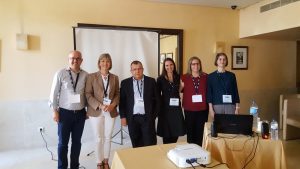
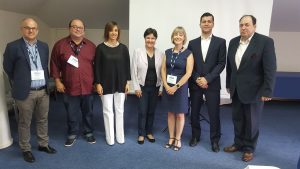
The conference took place in Braga, a municipality located one hour away from Porto. The venue was the beautiful Bom Jesus de Braga (Good Jesus of the Mount), a pilgrimage site with a monumental, Baroque stairway that climbs 116 meters. The site, which has this weekend (6 July) been awarded UNESCO’s World Heritage status, features six hotels and a conference/events centre boasting outstanding views over the city of Braga. The shrine is very well maintained and has received substantial investment in the past eight years to support its application to world heritage status. In addition to the Baroque stairway, its landmarks include the church at the top of the stairway, the funicular (inaugurated in 1882, remaining one of the oldest in the world using a system of water counterweights) and the well maintained gardens and forest.

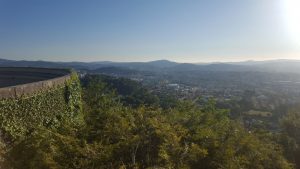
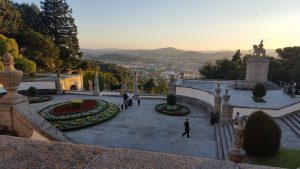
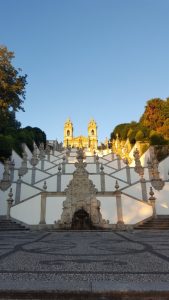
The social programme started with a welcome session and drinks at the premises of the Catholic University attended by the Braga Mayor, the Bishop of Braga and the President of the Porto and North of Portugal Tourist Board.
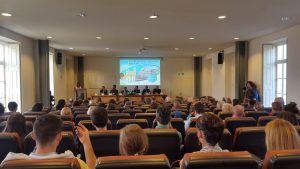
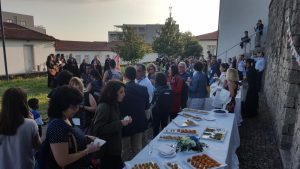
The second day featured a showcase of regional foods and handicraft, as well as a Cavaquinho performance (The cavaquinho is a small Portuguese guitar with four wire or gut strings).
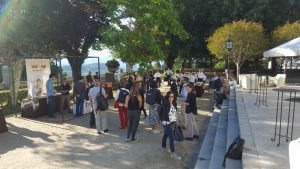
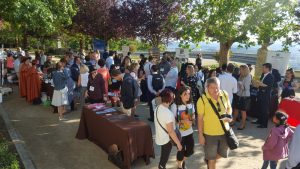
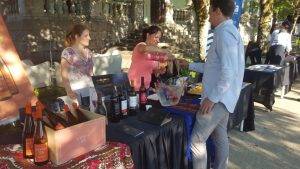
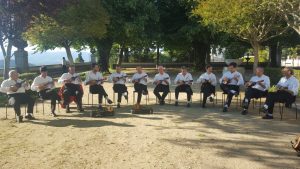
The gala dinner took place in Guimaraes city at the end of the third day. Participants had the chance to enjoy a guided tour across Guimaraes city center, a World Heritage site. The walk ended at the venue for the Gala dinner: the Palace of the Dukes of Braganza, whose construction initiated in the XV century. The gala dinner featured Fado (Portuguese traditional singing genre) and Rancho Folclorico (folk dance) performances.
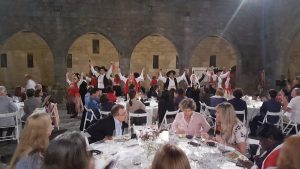
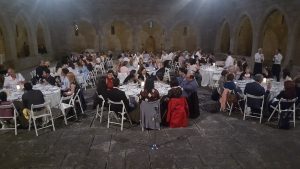
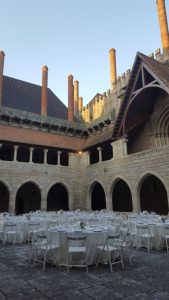
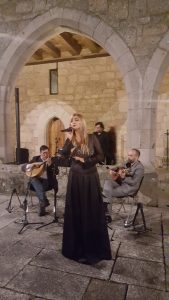
The last day of the conference took place in Porto. The day started with a visit to Palácio da Bolsa, a beautiful building showing an eclectic architectural style influenced by eighteenth century neoclassical style, Tuscany architecture, as well as, English Neo-Palladian style. Dr. Ricardo Valente, Councillor for Tourism and Commerce at Porto city council, welcomed participants before a guided tour of the palace.
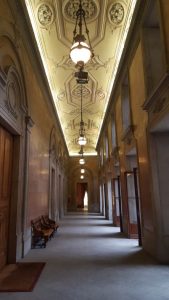
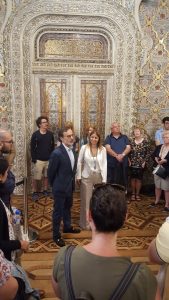
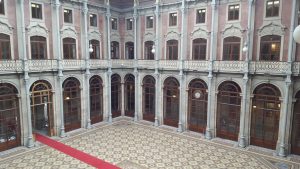
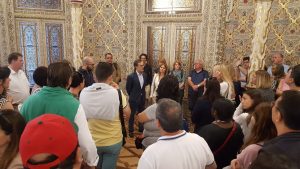
The day also included visits to other important landmarks , including ‘Caves Sandman’ (one of the famous Port Wine wineries on the south bank of the Douro River) and a river Cruise.
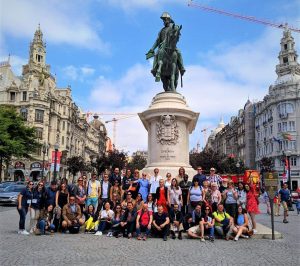
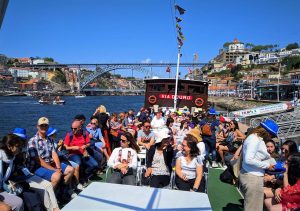

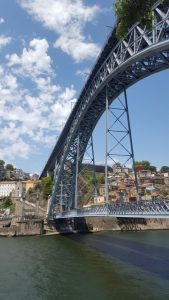
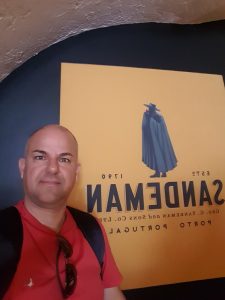
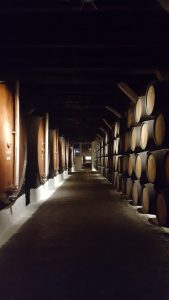
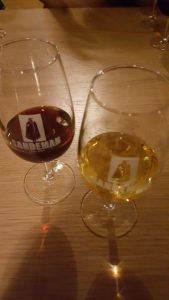











 Dr. Ashraf cited on ‘Modest Fashion’ in The Guardian
Dr. Ashraf cited on ‘Modest Fashion’ in The Guardian NIHR-funded research launches website
NIHR-funded research launches website Academics write for newspaper in Nepal
Academics write for newspaper in Nepal New paper published on disability in women & girls
New paper published on disability in women & girls Global Consortium for Public Health Research 2025
Global Consortium for Public Health Research 2025 MSCA Postdoctoral Fellowships 2025 Call
MSCA Postdoctoral Fellowships 2025 Call ERC Advanced Grant 2025 Webinar
ERC Advanced Grant 2025 Webinar Horizon Europe Work Programme 2025 Published
Horizon Europe Work Programme 2025 Published Horizon Europe 2025 Work Programme pre-Published
Horizon Europe 2025 Work Programme pre-Published Update on UKRO services
Update on UKRO services European research project exploring use of ‘virtual twins’ to better manage metabolic associated fatty liver disease
European research project exploring use of ‘virtual twins’ to better manage metabolic associated fatty liver disease